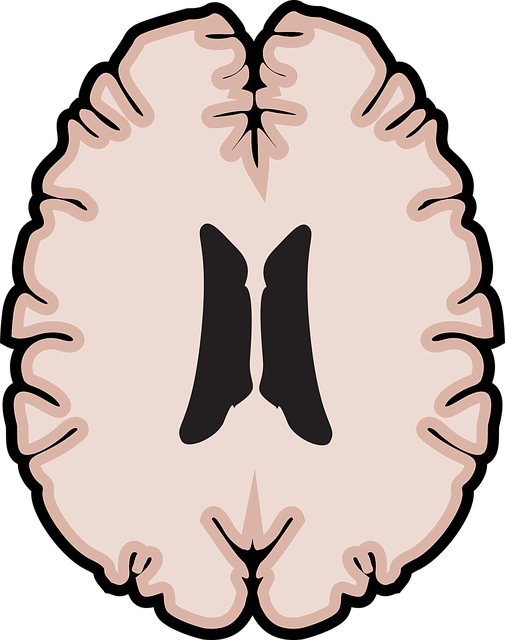Understanding and collecting mental health data from young sexual abuse survivors is vital for effective therapy for young children sexual abuse survivor support. This involves qualitative and quantitative methods, such as observations, interviews, surveys, and standardized pediatric assessments, to gain insights into emotional well-being, behaviors, and treatment responses. Therapy incorporates stress reduction techniques, community outreach programs identify victims and promote safety discussions, fostering resilience. Analyzing behavioral patterns helps therapists personalize treatments based on data-driven insights. Identifying trends in mental health data predicts recovery outcomes, enables tailored approaches, and supports survivors' healing journeys. Ethical handling of this sensitive data requires strict privacy protection guidelines to build trust and ensure safe disclosures.
Mental health data analysis plays a pivotal role in understanding and improving outcomes for young survivors of sexual abuse. This comprehensive guide delves into key aspects, beginning with the intricate process of collecting sensitive data from therapy sessions involving young children. We explore advanced techniques for analyzing behavioral patterns, enabling professionals to interpret treatment effectiveness. By identifying trends, we predict recovery trajectories, shaping personalized interventions. Additionally, ethical considerations and privacy safeguards in child therapy data are scrutinized, ensuring responsible practices.
- Understanding Mental Health Data Collection for Young Survivors
- Analyzing and Interpreting Behavioral Patterns in Therapy
- Identifying Trends: Predicting Recovery Outcomes
- Ethical Considerations and Privacy in Child Therapy Data
Understanding Mental Health Data Collection for Young Survivors

Understanding Mental Health Data Collection for Young Survivors is a critical step in ensuring effective therapy and support for those who have experienced sexual abuse. Young children, having undergone such traumatic events, often exhibit unique challenges that require tailored interventions. The process of data collection involves capturing qualitative and quantitative information to gain insights into their emotional well-being, behaviors, and responses to treatment. This includes observations, interviews, surveys, and standardized assessments specifically designed for pediatric populations.
Focusing on therapy for young sexual abuse survivors, mental health professionals employ various stress reduction methods and stress management techniques adapted from evidence-based practices. Community outreach program implementation plays a vital role in identifying potential victims, offering resources, and promoting open conversations about child safety and emotional resilience. By combining these approaches, practitioners can holistically address the complex needs of young survivors, fostering their healing journey.
Analyzing and Interpreting Behavioral Patterns in Therapy

Analyzing and interpreting behavioral patterns is a critical aspect of therapy, especially when working with young children who have experienced sexual abuse. By closely examining a survivor’s behavior, therapists can gain valuable insights into their mental wellness and emotional state. These patterns often manifest as changes in mood management, revealing signs of distress or coping mechanisms. For instance, a child might exhibit aggressive behavior following sessions discussing traumatic events, indicating a need for crisis intervention guidance.
Through meticulous data analysis, therapists can identify recurring behaviors that serve as red flags or indicators of progress. This approach allows for more personalized treatment plans, focusing on specific areas of improvement. By understanding the unique behavioral signatures of each survivor, professionals in the field can provide tailored support, ensuring the best possible outcomes for young individuals navigating their mental health journey after sexual abuse.
Identifying Trends: Predicting Recovery Outcomes

Identifying trends within mental health data is a powerful tool for predicting recovery outcomes, especially in vulnerable populations like young children who have experienced sexual abuse. By analyzing patterns, researchers and healthcare providers can gain valuable insights into what works best for certain individuals. For instance, studying the effectiveness of different therapy approaches tailored to these survivors can reveal successful interventions that foster healing. This process involves sifting through complex data to identify common factors contributing to positive outcomes, such as early crisis intervention guidance or cultural competency training for healthcare providers.
Such analysis also enables the development of more precise and personalized treatment plans. For young sexual abuse survivors, this might include implementing stress management techniques or integrating specialized therapy models that address specific trauma-related challenges. By understanding trends and adapting practices accordingly, mental health professionals can improve their ability to support these children on their journey towards recovery and well-being.
Ethical Considerations and Privacy in Child Therapy Data

The ethical handling of mental health data, especially when it involves young children who have experienced sexual abuse, is a complex and critical issue. As therapy sessions can be highly sensitive, professionals must adhere to strict privacy guidelines to protect clients’ identities and ensure their confidentiality. This is paramount in building trust and fostering an environment where survivors feel safe to disclose details of traumatic experiences. The data collected during these vulnerable interactions requires careful consideration, especially when it may include information that could identify the child or reveal specific circumstances surrounding the abuse.
Professionals working with sexual abuse survivors among young children must navigate a delicate balance between sharing insights for improved therapy and maintaining privacy. Crisis intervention guidance often emphasizes the importance of data analysis in understanding trends and developing effective treatment strategies. However, this process must be conducted meticulously, respecting the sensitive nature of the information. Risk assessment tools designed for mental health professionals can aid in managing potential risks while ensuring that the focus remains on providing adequate care and support to these survivors, promoting healing through evidence-based practices like mindfulness meditation.
Mental health data analysis plays a pivotal role in enhancing therapy outcomes for young survivors of sexual abuse. By understanding unique data collection methods, recognizing behavioral patterns, and predicting recovery trends, therapists can tailor interventions more effectively. However, ethical considerations regarding privacy and informed consent are paramount when dealing with sensitive child therapy data. Balancing these factors ensures the development of evidence-based practices that promote healing while upholding the highest standards of protection for vulnerable populations.














